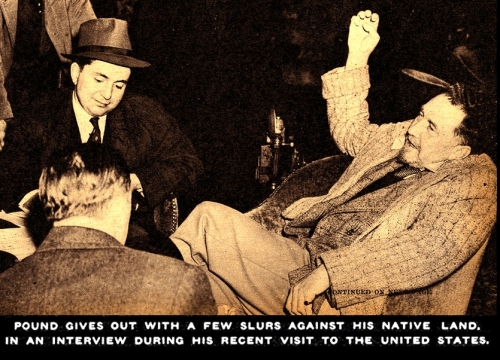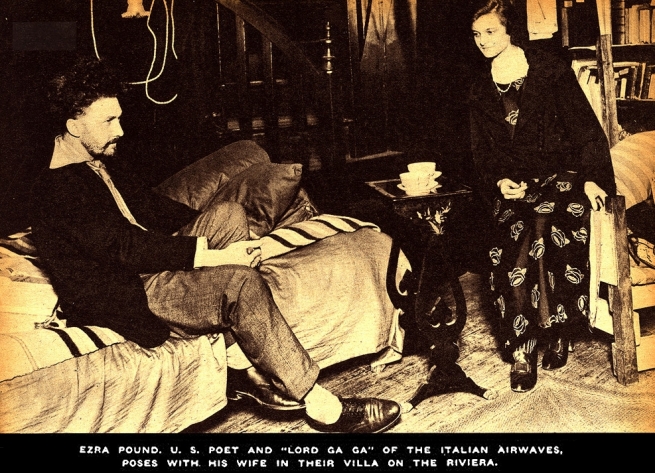"Friends, I do not ask you to believe merely what I tell you. I am speaking of known facts, obtained in the only cities where truth still reigns: Rome, Berlin and Tokyo."
- so rambled the ex-patriot American poet Ezra Pound (1885 - 1972) in one of his one hundred radio broadcasts in which he spewed Axis blather for his vulgar friends in Mussolini's government. On May 3, 1945 he was captured by Italian partisans who in turn handed him over to the U.S. Army. While in U.S. custody he learned that he had been indicted in absentia for treason during the Summer of 1943.
In reviewing David Moody's book, Ezra Pound, Poet: The Tragic Years 1939 - 1972 (2016), writer Allan Massie made clear Ezra Pound's bizarre reasoning as to why the poet chose to broadcast Fascisti propaganda for five straight years.
"He did so, in his opinion, as a patriotic American, opposed to the war and the Roosevelt government but speaking in defense of the Constitution as he understood it."
"Was he a fascist? Yes and no. On the one hand, he described himself as a 'fascist of the left'. On the other hand, he was never a member of any fascist party, and believed himself to be an American democrat, a citizen of the Republic... He regarded what he called 'the money power' of usury as the root of all evil. He admired Mussolini because he thought the fascist corporate state was also opposed to the money power, he was blind to the brutality of the fascist regime."
In the end, the reviewer continued:
"Pound knew he had gone wrong. He regretted indulging in the 'stupid suburban prejudice' of anti-semitism and felt that he'd made 'a botch' of his magnum opus, The Cantos."
From Amazon:
The Bughouse: The Poetry, Politics, and Madness of Ezra Pound
Click here to read more articles about American traitors of the Second World War.



